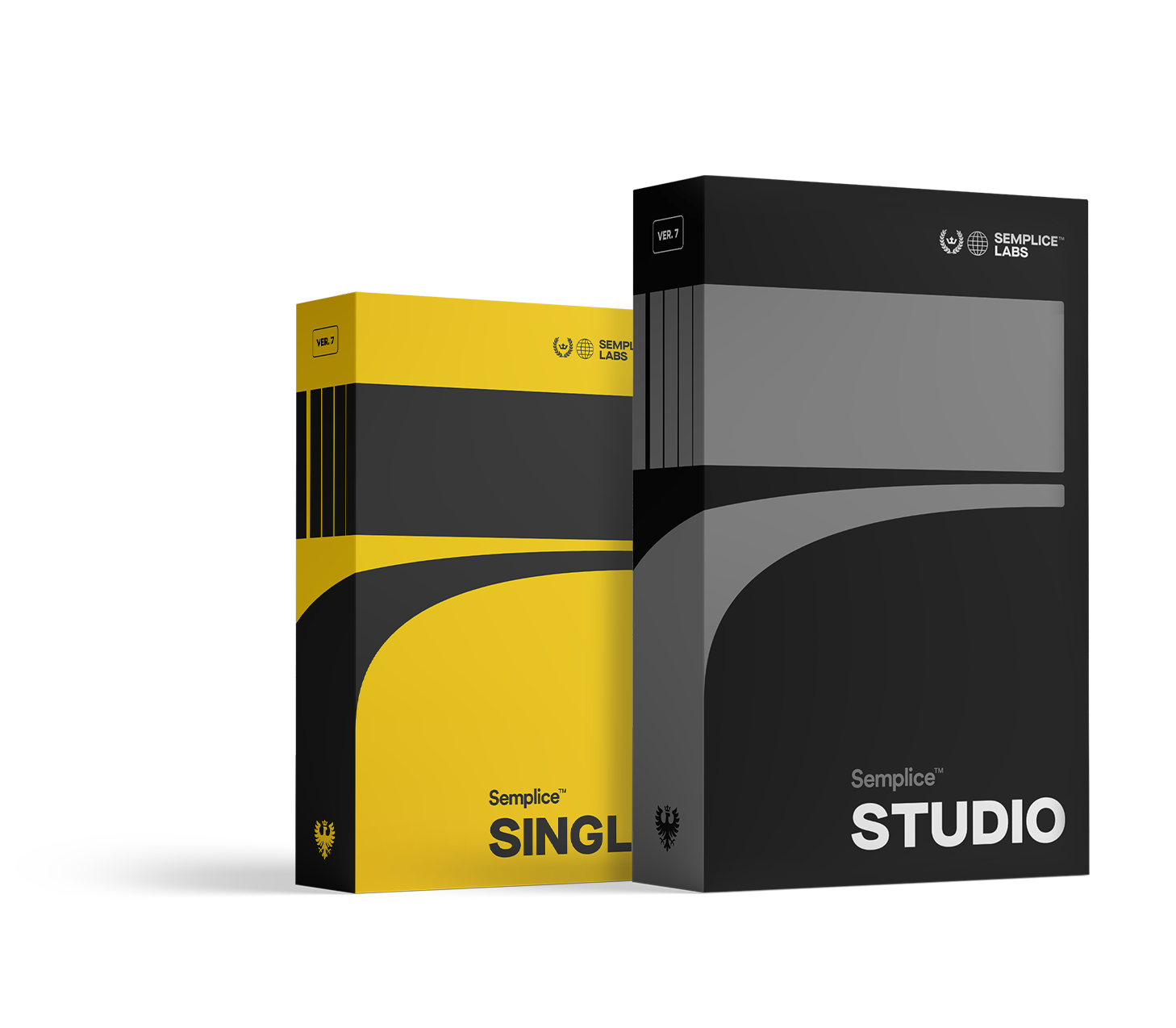CÅSE STUDIËS
CÅSE STUDIËS
CÅSE STUDIËS
CÅSE STUDIËS
CÅSE STUDIËS
Case studies are the foundation of your portfolio. But writing great case studies is as daunting as assembling that Swedish shelf that’s also a bed that’s also a bicycle. The Semplice guide to case studies makes it easy.
Case studies are the foundation of your portfolio. But writing great case studies is as daunting as assembling that Swedish shelf that’s also a bed that’s also a bicycle. The Semplice guide to case studies makes it easy.
Jot down your main points – before you do anything else.
Jot down your main points – before you do anything else.
Jot down your main points – before you do anything else.
Jot down your main points – before you do anything else.
Jot down your main points – before you do anything else.
- Rather than writing content to fit your design, start with it.
- Don't bother with images or layout yet. Simply put down your thoughts in a doc.
- Think of your project in phases. Start with Phase 1 (usually the ideation or exploration phase). Write it all down and continue to Phase 2.
Keep it brief & caption everything.
Keep it brief & caption everything.
People scan, they don’t read. If we scroll through and only read your 1-2 sentence captions, we should still understand the project. The whole thing should take three minutes to read, tops.
Mackey Saturday's case studies are scannable with short paragraphs between images.
Mackey Saturday's case studies are scannable with short paragraphs between images.
Do make your case study scannable with headlines, short paragraphs and captions.
Do make your case study scannable with headlines, short paragraphs and captions.
Don’t write a novel, Dickens. We don’t get extra points for word count anymore.
Don’t write a novel. We don’t get extra points for word count anymore.
Give credit & explain your role.
Give credit & explain your role.
This could be as simple as listing “Role: art direction & design” or including a full list of team credits (if you’re nice). Understanding what part you played is crucial and can mean the difference between getting hired or not.
Christina Michelitsch lists credits on each project just like a film would. It's classy.
Do include team members and your role on the project.
Do include team members and your role on the project.
Don’t be shady about what part you played in the work.
Don’t be shady about what part you played in the work.
Write in your voice.
Write in your voice.
Acronyms and buzzwords only distance your reader. Don’t try to impress with lofty language. Just share your work in your own voice and be as clear as possible.
We should finish reading with a sense of your personality.
We should finish reading with a sense of your personality.
We should finish reading with a sense of your personality.
Provide context to the project and your design process.
Provide context to the project and your design process.
Think about what your reader needs to know to appreciate this project. As concisely as possible, explain how you approached the problem and how you worked through it.
Caroline Lewandowski's case studies share the project challenge and how she solved it.
Do share how you approached a project from concept to solution.
Do share how you approached a project from concept to solution.
Don’t drop a bunch of photos on the page without context and call it done.
Don’t add a bunch of photos to the page without context.
Think of each case study like a magazine feature.
Think of each case study like a magazine feature.
Magazine spreads are designed to fully immerse you in the piece. They include photos at specific places to illustrate a point or bring a scene to life. They use pull quotes to pique your interest or point out a compelling part of the story. They break up paragraphs with photos, but take care to not disrupt your reading experience.
Think about the story you want to tell with your case study. Each story is unique, and your case studies should be too.
Instead of using the same template for every project, Noemie Le Coz customizes each page to fit the brand and tell a story.
Instead of using the same template for every project, customize it to fit the project. Semplice allows you to use unique navigations, footers and more to fit the work.
Do design each page uniquely to fit the work and put your project in the best light.
Do design every piece of your project page to best set up your work.
Don't use the exact same template for every project, if you can avoid it.
Don't use the exact same template for every project, if you can avoid it.
Checklist
Do you have all the right details in your case study?
Do you have all the right details in your case study?
1. Title of project
Consider including the type of work in the title so we can easily see your specialities at a glance.
For example, instead of “Nike Air Max” say “Nike Air Max ecommerce experience.”
2. Introduction & goal
Set the scene for your reader with a quick sentence explaining what this project is all about.
What’s the product? What was the briefing? What challenge did you set out to solve? Did you have a certain idea or expectation for the project when you began?
3. Process & experience
In a paragraph or two, explain how you worked through the project. Why did you choose that approach? Did you take a unique angle or notice some surprising insight?
Ask yourself “why” a thousand times, and then answer those questions.
4. The outcome
What happened? Did you feel proud of the result? Did it increase the client’s sales by 2000%? A case study should ideally be a success story. If it's not, tell us why it's meaningful and what you learned from it.
5. Credits & your role
This could be as simple as listing “art direction & design” beside the project summary or listing the full team like a film.
6. Images with captions
If someone scrolls through your case study and only reads the headlines and captions, they should still understand your project.

Join the Semplice family & launch your portfolio
Available only with
Semplice 6 Studio edition
Available only with Semplice 6 Studio edition
Available only with
Semplice 6 Studio edition
Available only with Semplice 6 Studio edition
Semplice 7 is a new paid product, not a free update.
Already an owner of Semplice 4, 5 or 6? Please read here.
Semplice 6 is a new paid product, not a free update. Already an owner of Semplice 3, 4 or 5? Please read here.

